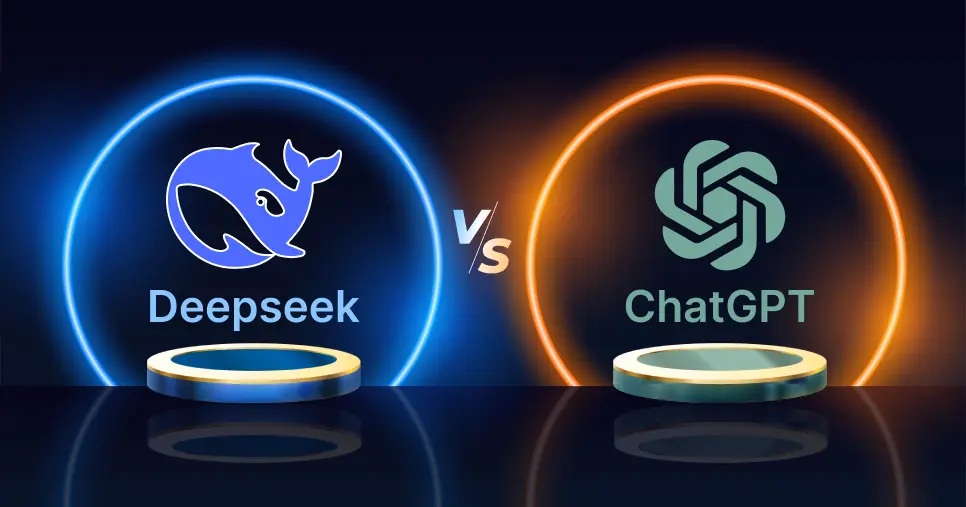
When it comes to selecting the right AI tool for your needs, both ChatGPT and Deepseek offer valuable capabilities, but they cater to different use cases. ChatGPT, developed by OpenAI, is a versatile and powerful conversational AI that excels at engaging in natural language processing (NLP) tasks. It is capable of handling a wide range of applications such as customer service, content creation, problem-solving, and even providing suggestions for various topics. It has a vast knowledge base and can generate human-like responses to queries, making it ideal for scenarios where the focus is on dynamic conversation and creative writing. On the other hand, Deepseek is a specialized AI tool primarily focused on data-driven insights and business intelligence. It excels at data search, analysis, and the generation of reports based on large sets of structured and unstructured data. Deepseek is particularly useful in environments that require deep data diving, such as market research, competitive analysis, and extracting insights from extensive databases.
What is ChatGPT?
ChatGPT is like a super-smart conversation partner. It’s great at answering questions, writing content, helping with homework, or just having a chat. The tool can generate text on almost anything, from essays to code. However, ChatGPT can be slow sometimes, especially when lots of people are using it at once, or if you ask it complex questions. But overall, it’s incredibly helpful for most general uses.
What is Deepseek?
Deepseek, on the other hand, isn’t focused on conversation. Instead, it’s a tool built for deep searching. If you need to dig into large databases and find very specific information, Deepseek is your best bet. It’s designed to help researchers, analysts, and anyone who needs to find detailed data. While it’s excellent at handling niche queries, it doesn’t offer the same human-like interaction that ChatGPT does.
ChatGPT vs. Deepseek: How Do They Compare?
If you’re wondering, “ChatGPT vs. Deepseek, how do they compare?” the main difference is in what they do best. ChatGPT is great for casual conversations and general knowledge. If you need something written, a quick answer, or help with coding, it’s the way to go. Deepseek is all about deep research. It’s fantastic for finding specific facts from large sets of data.
In terms of speed, Deepseek tends to be quicker at answering data-heavy queries, while ChatGPT can slow down if too many people are using it or if you ask complex questions. The choice depends on whether you want help with writing or need detailed, specialized research.
ChatGPT or Deepseek: Which is Best for You?
- Choose ChatGPT if:
- You need help writing essays, blogs, or answering general questions.
- You want to chat with an AI that can offer creative ideas and support.
- You need assistance with coding or learning new concepts.
- Choose Deepseek if:
- You need to search large databases for specific insights.
- You work with detailed data and need highly accurate, niche results.
- You’re a researcher or an analyst who requires in-depth information.
Price Comparison: ChatGPT vs. Deepseek
Both tools have different pricing models. ChatGPT offers a free version, with paid plans that give faster responses and more features. Deepseek, however, is often a subscription-based service, especially since it’s aimed at professionals who need advanced features for research and data analysis.
ChatGPT vs Bard vs Bing: A Broader Comparison
Looking at AI options like Bard or Bing, it’s clear that ChatGPT has the upper hand for conversations and writing. Bard and Bing are integrated into search engines, so they focus more on pulling live data from the web. ChatGPT, though, shines when it comes to generating text and having detailed, helpful conversations.
| Aspect | DeepSeek | ChatGPT |
| Purpose and Functionality | Data analytics, searching, and extracting insights from large datasets | Conversational AI, provides text-based responses and assistance |
| Data Processing | Advanced algorithms for mining and analyzing structured and unstructured data | Processes text inputs and generates human-like responses based on large language models |
| Integration and Use Cases | Specialized for businesses, research institutions, and data-driven environments | Integrated into chatbots, customer service tools, content creation, and tutoring |
| User Interface | Data-centric interface with query building, visualization, and report generation tools | Conversational interface where users interact via text |
| Learning and Customization | Specialized learning for industry-specific data and insights | General learning from diverse text data with customization via fine-tuning |
| Output and Response Style | Outputs data insights, reports, and analytics (numeric, visual, tabular) | Outputs conversational text responses, explanations, suggestions, or creative content |
| Scalability | Scalable for large data analysis tasks and enterprise-level applications | Scalable for a wide range of applications, primarily for communication and text-based tasks |
| Technology | Uses machine learning, data science, and NLP for data extraction and analysis | Built on deep learning and NLP models like GPT for generating text |
| Target Audience | Data analysts, researchers, business intelligence professionals, and organizations | General users, businesses, educators, content creators, and those needing conversational assistance |
Conclusion: Which is the Right Tool for You?
Both ChatGPT and Deepseek are powerful tools, but they serve different purposes. If you need conversational support, content generation, or code help, ChatGPT is your best option. However, if your work is more research-heavy and you need deep insights from databases, then Deepseek is the way to go.
The choice comes down to what you need—general knowledge and creative output from ChatGPT, or precise data and research from Deepseek. Either way, both tools offer incredible value in their respective areas.
